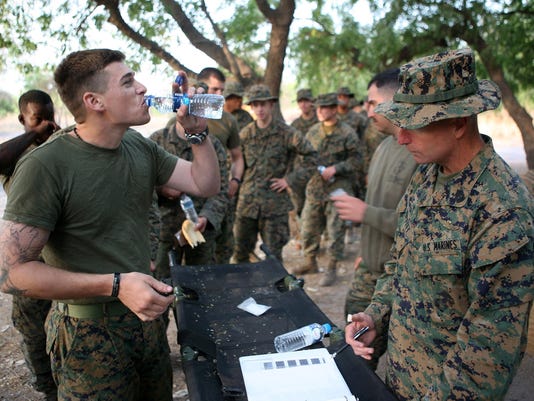
Malaria and PTSD: How An Anti-Malarial Drug Might Be The Cause Of Many Soldiers’ PTSD Symptoms
A frightening new case study has come to light on a military servicemember who was diagnosed with PTSD, but who is now thought to be suffering brain damage suffered as a result of an anti-malarial drug he was given. The implications for a thousands of soldiers similarly diagnosed after 9/11 could shake the military medical community to its very core.
The study, published in the online journal Drug Safety Case Reports in June, cited a U.S. military servicemember who sought treatment at Walter Reed National Military Medical Center in Bethesda, Maryland. The sailor reported symptoms of uncontrolled anger, insomnia, nightmares and memory loss, all consistent with PTSD, or post-traumatic stress disorder.
In addition, the affected sailor, who was previously a marathon runner and reportedly very fit before being deployed to East Africa in 2009, reported frequent stumbling, arguing with family, and suffering cognitive issues in which help from staff while trying to perform job duties was frequently required.
Following a diagnosis of anxiety, PTSD and a thiamine deficiency came months of treatment, including medication, behavioral therapy and daily doses of vitamins.
But little if anything was changed for the sailor. The patient continued to suffer from the same symptoms, to the point where a medical discharge came along.
It was only after subsequent physicians noticed that the sailor had complained of symptoms of vertigo that started two months after being deployed to Africa that someone put two and two together and suggested mefloquie poisoning. That’s the medication that was once used as an anti-malarial and has been linked to brain stem lesions and psychiatric symptoms.
Indeed, the sailor reported that he started having vivid dreams and a loss of equilibrium shortly after he began the deployment protocol, which included anti-malrial meds.
Although there isn’t a test that can prove conclusively that the sailor has suffered what is called “mefloquine toxicity,” he was given an adverse drug reaction probability survey to attempt to link his symptoms to the drug, also known as Lariam. He scored plenty high enough to call it a positive link.
And as reports of mefloquine side effects can last for years, and share such similarity to PTSD symptoms, doctors say it could “confound the diagnosis” of either one.
“It demonstrates the difficulty in distinguishing from possible mefloquine-induced toxicity versus PTSD and raises some questions regarding possible linkages between the two diagnoses,” wrote Army Maj. Jeffrey Livezey, chief of clinical pharmacology at Walter Reed.
And while mefloquine was long the military’s drug of choice for battling malaria, it has since been relegated to drug-of-last-resort status due to its known psychiatric and neurological side effects.
But that was of course too late for the sailor in question. How many other soldiers suffer from a form of “PTSD” that was given to them in the form of a shot administered by a military doctor?
###
http://www.militarytimes.com/story/military/2016/08/11/malaria-drug-causes-permanent-brain-damage-case-study/88528568/

